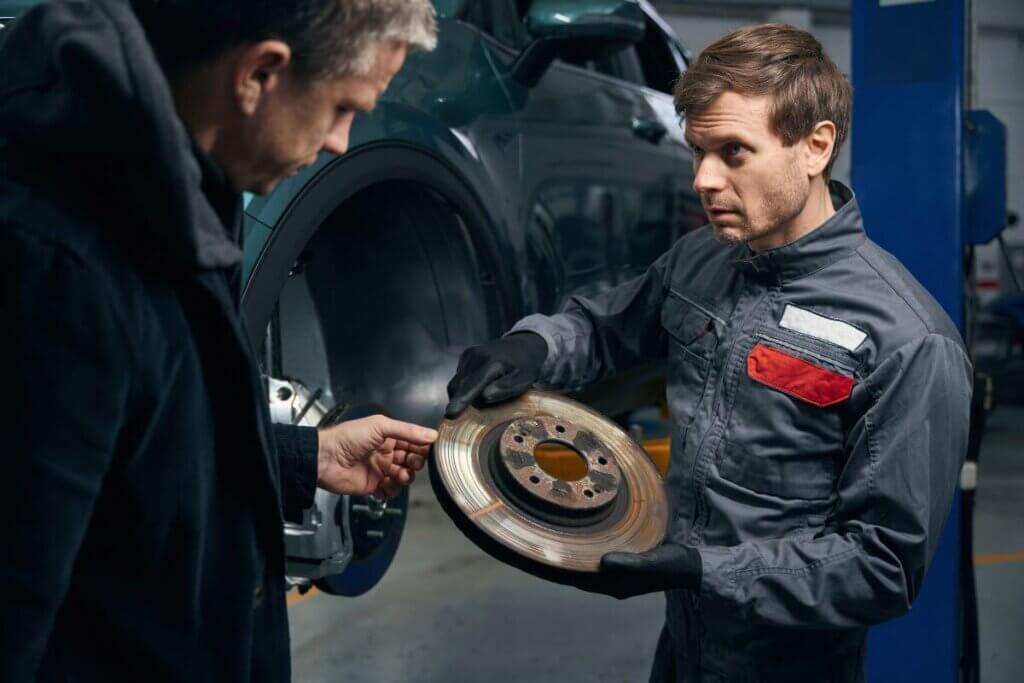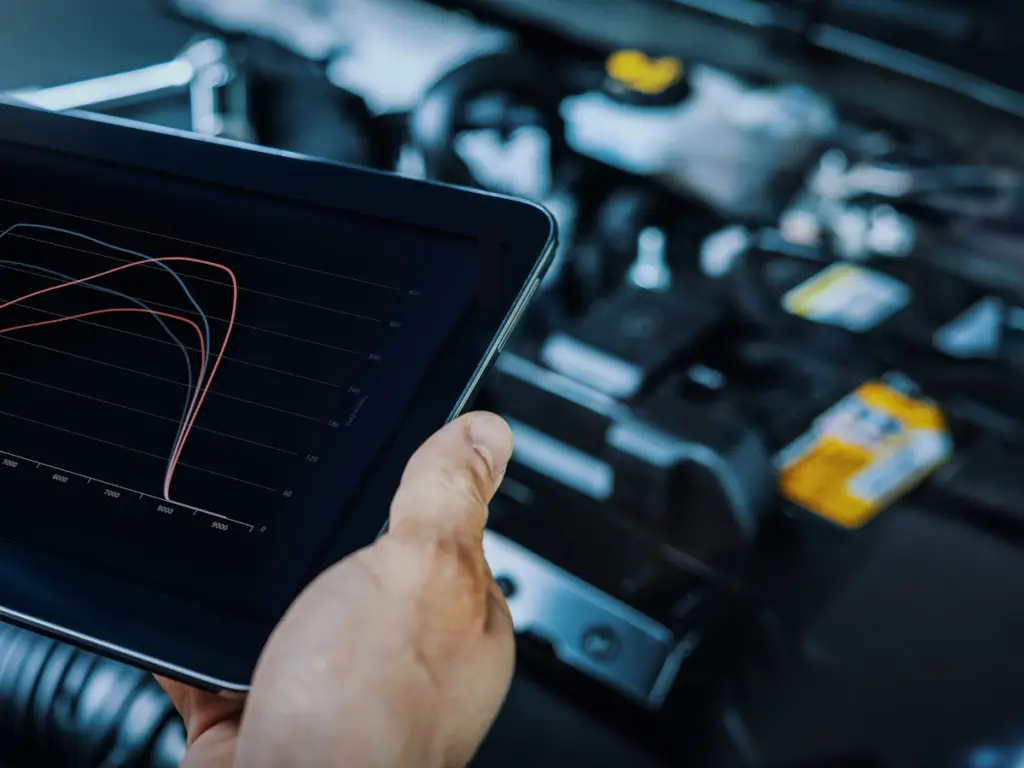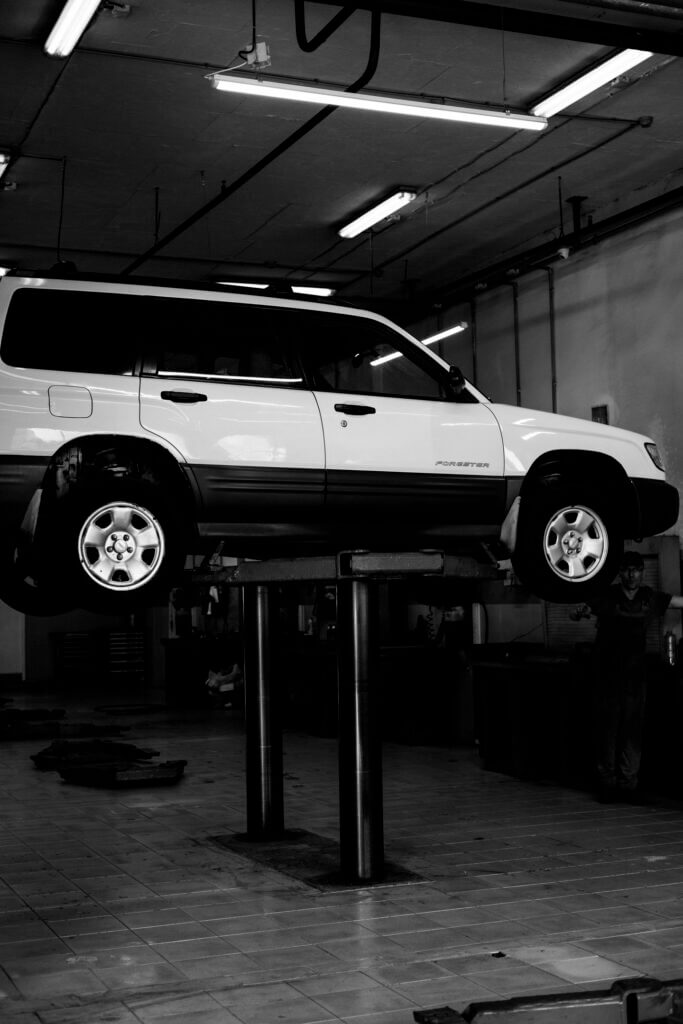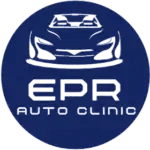Car AC Not Cooling? EPR Auto Clinic Fixes It Fast | Newark

Car AC blowing warm air? Learn common causes, from simple fixes to signs you need an expert. Get our troubleshooting tips and stay cool this summer!
Spring Car Care Tips Newark, NJ | EPR Auto Clinic

After a tough New Jersey winter, your car needs a thorough check-up! At EPR Auto Clinic in Newark, our spring car care checklist includes tire inspections and A/C tests to ensure your vehicle is safe for warmer months. Don’t let winter’s toll affect your drive—trust our expert mechanics for maintenance. Schedule your comprehensive maintenance package today for peace of mind on the road!
Top 5 Hybrid Car Problems (and How to Avoid Them)

Hybrid cars are popular among families and delivery drivers in Northern states like New Jersey.They offer impressive fuel savings, lower emissions, and a quieter ride.However, these vehicles face unique mechanical challenges that can lead to unexpected downtime. 1: Hybrid batteries Failure Hybrid batteries are designed to last for years.Yet, extreme weather and repeated short trips may cause premature wear.Families who commute locally might notice reduced battery performance faster than frequent highway drivers. How to Prevent Battery Failure Regularly schedule checkups with a hybrid car repair near me to diagnose minor issues early.Parking in shaded or temperature-controlled areas helps avoid overheating and freezing.Consistent driving also boosts battery health by maintaining stable charge levels. 2: Inverter Overheating The inverter converts direct current to alternating current.When it overheats, the hybrid system may shut down or show warning lights.Low coolant levels or clogged air passages often worsen this problem. Tips to Keep the Inverter Cool Check the coolant reservoir regularly and top it off if needed.Clear away any debris near air vents to ensure proper airflow.If you spot strange smells or see rising temperature gauges, consult a professional immediately. 3: Regenerative Braking Wear Hybrid cars rely on regenerative braking to charge the battery.Frequent stop-and-go traffic common in New Jersey can strain brake components.Over time, pads and rotors wear unevenly, reducing braking efficiency. Maintaining Brakes for Longevity Stick to routine brake inspections to spot wear early.Practice smooth braking instead of abrupt stops.If you sense grinding noises or vibrations, visit a hybrid car repair near me promptly. 4: Electrical System Glitches Modern hybrid cars are packed with sensors and control units.Any minor electrical glitch can trigger warning lights on the dashboard.Loose wiring or failing control modules may cause sudden system faults. Spotting Electrical Red Flags Watch out for flickering lights or unresponsive touchscreens.If your gear shifts feel jerky, or the engine stalls abruptly, seek professional help.Tiny issues can escalate into common hybrid issues affecting overall reliability. 5: Engine-Related Oil Leaks Hybrid engines run at higher efficiency but still rely on motor oil.Small leaks often go unnoticed until they cause significant damage.Delivery drivers covering high mileage are especially vulnerable. Detecting and Preventing Oil Leaks Check the ground for dark puddles or strong oil smells.Monitor oil levels regularly and change it as recommended by the manufacturer.Using high-quality oil suited for hybrids can prolong engine life and reduce leaks. Essential Prevention Tips Proactive maintenance goes a long way.Below are some quick tips to keep your hybrid humming smoothly: Frequently Asked Questions (FAQ) Are hybrid cars suitable for cold climates in the North? Yes. They handle cold weather well, though battery performance can dip slightly. Using engine block heaters and parking indoors helps. Why do hybrids sometimes cost more to repair? They have specialized parts and electrical systems. However, routine maintenance usually offsets major repairs over time. Do hybrid cars need oil changes like regular cars? Absolutely. The gasoline engine still requires proper lubrication, though intervals can differ from fully gasoline-powered vehicles. Is extended idling harmful for hybrid cars? Long idling periods can strain the battery and affect engine health. Short breaks are fine, but avoid leaving the car idle for extended times. How can I find reliable hybrid car repair near me in Newark, NJ? Look for experts technicians with hybrid experience. Read reviews and ask about warranties on parts and labor. Conclusion Addressing these five hybrid car problems early helps you avoid expensive repairs and frustrating downtime.Regular checkups, proper maintenance, and informed driving habits can extend your hybrid’s life.Keeping your vehicle in top shape ensures a smoother experience, whether you’re running errands or making delivery rounds in New Jersey. Ready to unlock your hybrid’s full potential? At EPR Auto Clinic, we offer comprehensive services—battery diagnostics, brake checks, and more. Explore our blog for in-depth tips, or schedule your service appointment now. We’re here to keep you moving with confidence—no matter where the road takes you!
How Long Does a Hybrid Car Battery Last?

How long does a hybrid battery last? Discover the signs of failure and how to extend its lifespan. EPR Auto Clinic in Newark, NJ can help.
Brake Replacement 101: Clear Signs Your Car Needs New Brakes

Hearing grinding noises or feeling vibrations? Our Brake Replacement 101 guide details the clear signs your car needs new brakes to keep you safe.
Car Maintenance Signs in Newark, NJ – What to Watch For

Is your car trying to tell you something? From strange noises and vibrations to warning lights on your dashboard, these signs shouldn’t be ignored. At EPR Auto Clinic in Newark, NJ, we understand that early detection of vehicle issues can save you from costly repairs and ensure your safety on the road. Our experienced mechanics are dedicated to providing transparent diagnostics and efficient service. Don’t wait for a breakdown—discover the top signs your car needs maintenance and learn how we can help you drive with confidence. Schedule your preventative maintenance today!
My Car Won’t Start – What to Do? Newark, NJ

Is your car refusing to start? Don’t panic! Before calling for a tow, there are quick checks you can perform to diagnose the issue. From a dead battery to fuel pump failures, knowing the causes can save you time and money. At EPR Auto Clinic in Newark, NJ, our expert team is ready to help you. Read on to learn common reasons your car won’t start and how to address them!
Noisy Brakes? Common Causes and How to Fix Them

Are your brakes making unusual noises? Squealing, grinding, or clicking can signal serious issues that threaten your safety and lead to costly repairs. Ignoring these sounds may reduce stopping power and increase accident risk. At EPR Auto Clinic, we specialize in diagnosing and fixing brakes to keep you safe. Don’t wait! Learn practical brake maintenance tips and how our expert team can assist you today. Your safety is our priority!
Top 5 Car Error Codes You Shouldn’t Ignore

Is your check engine light on? Don’t ignore it! Understanding car error codes is vital for your vehicle’s performance. From P0420 for catalytic converter issues to P0300 for cylinder misfires, these alerts can save you from costly repairs. At EPR Auto Clinic, we efficiently diagnose and fix these problems. Explore the top car error codes with us and keep your car running smoothly!
Vehicle Suspension: Your Guide to a Smoother, Safer Ride

If you’ve felt your car jolt over a pothole or heard clunking sounds near the wheels, you know a good suspension system is vital for comfort and safety. Our guide discusses the importance of suspension, warning signs, and how EPR Auto Clinic in Newark can help maintain it. Don’t wait for minor issues to escalate—learn how to keep your suspension in check for a safer driving experience!
